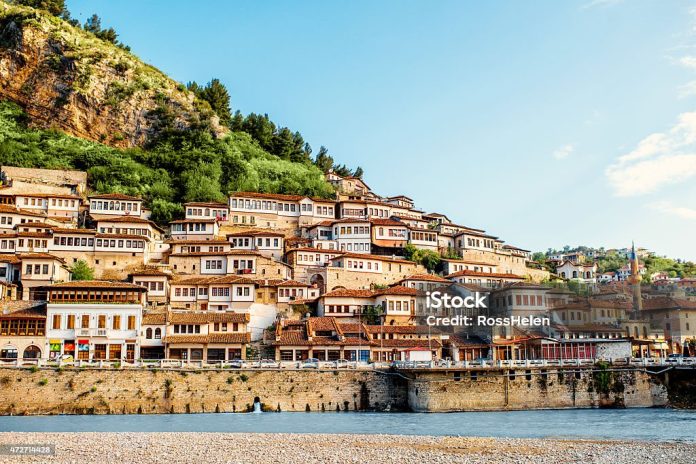by InTrieste
Italy has opened two migrant reception centers in Albania as part of a controversial initiative to process male migrants intercepted at sea, sparking criticism from human rights organizations. The move comes under a five-year agreement signed last November between Italian Prime Minister Giorgia Meloni and her Albanian counterpart, Edi Rama.
On Monday, an Italian navy ship transported the first group of migrants to Albania, according to the Italian news agency ANSA. The reception centers, located in Shengjin and nearby Gjader in northern Albania, are expected to process and house up to 3,000 male migrants per month as their asylum claims are reviewed.
The arrangement, which excludes women, children, and “vulnerable” individuals—who will instead be sent to Italy—is being managed by Italy’s Interior Ministry. While located in Albania, the processing facilities are under Italian jurisdiction, staffed by some 500 Italian personnel, including police officers, prison guards, and soldiers.
Constructed at a cost of €670 million, the migrant centers are part of Prime Minister Meloni’s broader effort to curb migration by intercepting boats in the Mediterranean and relocating those aboard to third-party countries. The policy has drawn fierce opposition from human rights organizations, who argue that the approach undermines fundamental rights to asylum.
On Sunday, the German NGO Sea Watch denounced the Italian government’s handling of migration, accusing Meloni’s administration of “spending hundreds of millions of euros of taxpayers’ money to deport and incarcerate a few thousand migrants in Albania.” The organization urged the government to focus on “welcoming and integrating migrants rather than rejecting them.”
In response, Meloni took to social media to defend her government’s actions, stating, “What a scandal! A government which—following the clear mandate given by citizens—is working to defend Italian borders and stop human trafficking, through concrete actions and international agreements.”
The decision to process migrants offshore marks a significant shift in Italy’s migration policy. However, it continues to be met with sharp criticism, with human rights advocates warning that the new system could violate European and international asylum laws, particularly if migrants are denied their right to seek protection in Italy.
The centers are expected to operate at full capacity in the coming months as Italy faces mounting pressure to address the increasing number of migrants crossing the Mediterranean.





























